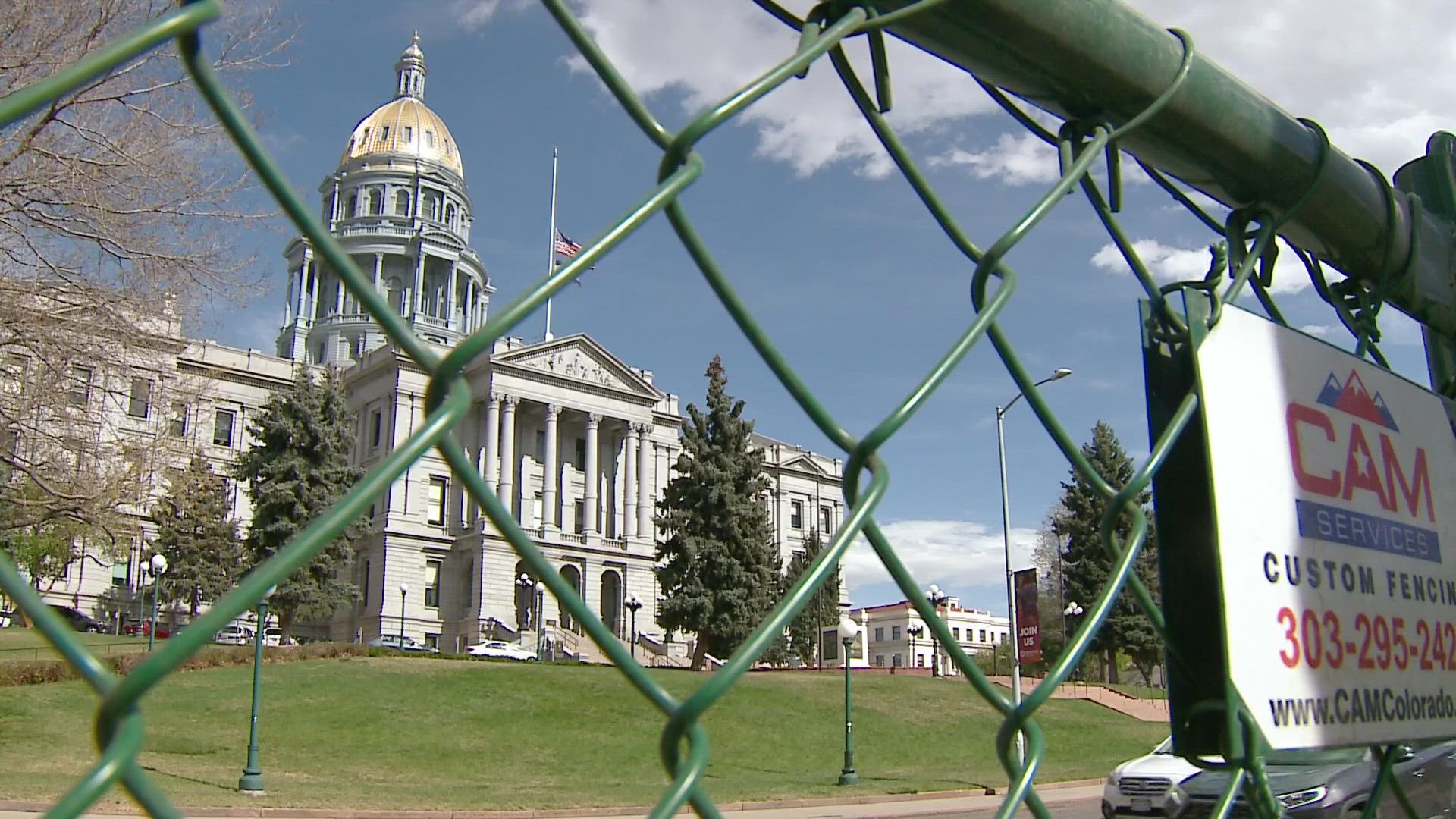DENVER — The TABOR checks sent out to Coloradans last year will not be taxed after all.
According to a release from Gov. Jared Polis' (D) office and the Colorado Department of Revenue on Friday, the IRS won't require Coloradans to pay federal income tax on the refunds.
The IRS had previously told taxpayers in 19 states, including Colorado, that they should wait to file their taxes while the agency worked with state governments to get more information about special tax refunds or one-time payments given out last year.
"We, like millions of Coloradans, are breathing a sigh of relief that the IRS and federal government have stepped away from taxing our refunds this year," Polis said in a statement.
In 2022, single filers in Colorado received physical checks for $750, while people who filed jointly received $1,500.
Refunds are mandated by a Colorado constitutional amendment that limits how much the state can keep and spend each year. When the state goes over that limit, TABOR refunds happen, but they aren't typically given in the form of a check.
The first mechanism for TABOR refunds is through a senior and veteran property tax exemption. The second is through a temporary income tax rate reduction. Normally, the third mechanism is through a sales tax refund that goes through six-income tiers and is sent back as tax credits when state income taxes are filed.
Lawmakers passed a bill in 2022, which Polis signed, that allowed for checks to be sent to Coloradans.
Colorado's Department of Revenue told the IRS this week they didn't believe the TABOR refunds should be taxable.
"Colorado believes it is well positioned to make the argument that their refunds should be nontaxable. The state has used a refund mechanism for excess state revenues since the inclusion of the Taxpayer Bill of Rights (TABOR) as an amendment to the state constitution in 1992. TABOR requires the state to return "excess state revenue" to taxpayers through multiple refund mechanisms and Colorado has done so on numerous occasions and through various statutory methods since 1992. The IRS has never attempted to tax TABOR refunds in the past 30 years," the department said in a statement.
Prior to the announcement, Polis said Friday he did not believe the refunds should be subject to a tax. Colorado's entire congressional delegation had also sent a letter to the IRS arguing the refunds shouldn't be taxable and argued the IRS waited to late to give taxpayers a heads up about possible changes.
Colorado Sen. Michael Bennet (D), chair of the U.S. Senate’s subcommittee on the IRS, went on to call the last week uncertainty a "disaster."
"I will demand answers for why the IRS explored this radical change, and why this took place in the middle of filing season," Bennet said.
Sloan Speck, an associate professor at CU Law with a focus on taxation and tax policy, acknowledged that the classification in which TABOR payments fall under (General Welfare and Disaster Relief Payments) can be complex.
"And so there was a kind of reasonable question that reasonable people might raise if they were just thinking about the law," Speck said. "But if you think about how this touches people's lives, I think it's very clear that it never should have come up."
He also believes it was the right move for the IRS to take, but not without a caveat.
"It is the legal position that they should reach if they're there working towards the correct solution. That does not mean, however, that the IRS will take the same position on future payments," he explained. "And it really seems to imply that it's not going to in its letter. And so for state legislatures, there's going to be a question of negotiation with IRS about what these payments are going to be."
Speck adds that he believes the news release from the IRS today sends a message to the state's involved in Friday's announcement.
"...not to repeat this type of experiment in the future. And I think from the state perspective, there probably is some enthusiasm to repeat this experiment in the future," he said. "So there is going to be an ongoing conversation between state revenue agencies and the IRS about how to deal with these types of payments."
Previously, a pair of Democratic lawmakers drafted a bill seeking to end TABOR payments and to put the money elsewhere, like education spending.
SUGGESTED VIDEOS: Next with Kyle Clark
>Watch 9NEWS original shows, live Colorado news and weather updates, daily forecasts, and sports coverage for free on the 9NEWS+ app on Roku and Fire TV.
9NEWS+ has multiple live daily shows including 9NEWS Mornings, Next with Kyle Clark and 9NEWS+ Daily, an original streaming program. 9NEWS+ is where you can watch live breaking news, weather updates, and press conferences. You can also replay recent newscasts and find videos on demand of our top stories, local politics, investigations and Colorado specific features.
To download 9NEWS+ on Roku search for KUSA.
To download 9NEWS+ on Fire TV search for 9NEWS.

